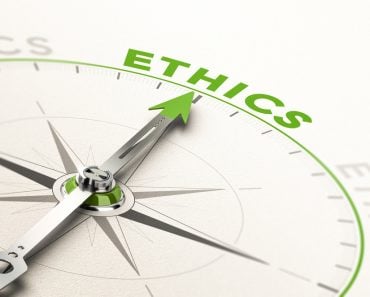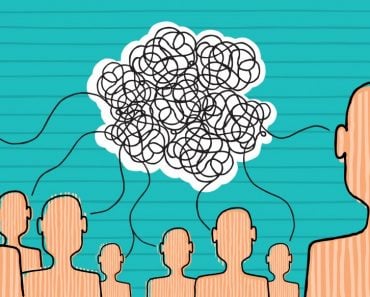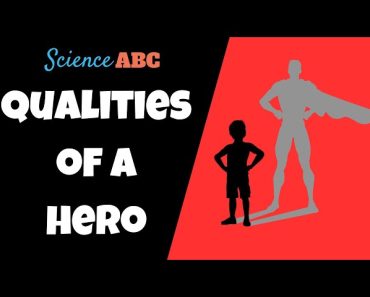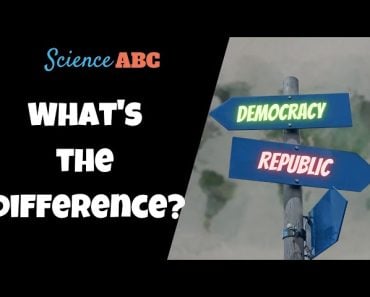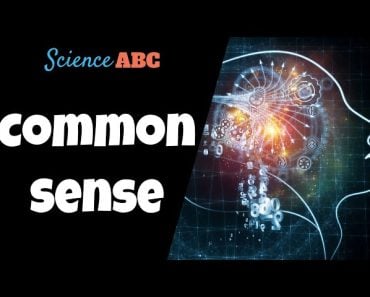Table of Contents (click to expand)
A moral compass is the collective term for the beliefs, objectives and judgments each individual holds regarding what is right and wrong. Similar to a traditional compass used for navigation, a moral compass consists of the internal values that guide ethical behavior and decision-making.
There is no denying that life can be complicated, and navigating the challenging waters of interpersonal relationships and complex decision-making can be difficult. Every day, we make decisions—either “good” or “bad”—that guide our behavior. When shopping in the supermarket, we could easily hide a fancy bottle of spices in our pocket to save $10; most people choose not to do that—but why? If we’re in a committed relationship, what keeps us from flirting or texting with someone new? What about lying to our children, our subordinates, or our partners? When our emotions overwhelm us, whether they are anger, jealousy or love, what works to hold us back from violence and vindictive behavior?
The answer to these questions can broadly be stated as our “moral compass”, something that varies between every individual, and is influenced by a myriad of evolving factors. Although quantifying—and even qualifying—a moral compass is a seemingly impossible task, this article will attempt to explore the nuances and nature of individual morality.
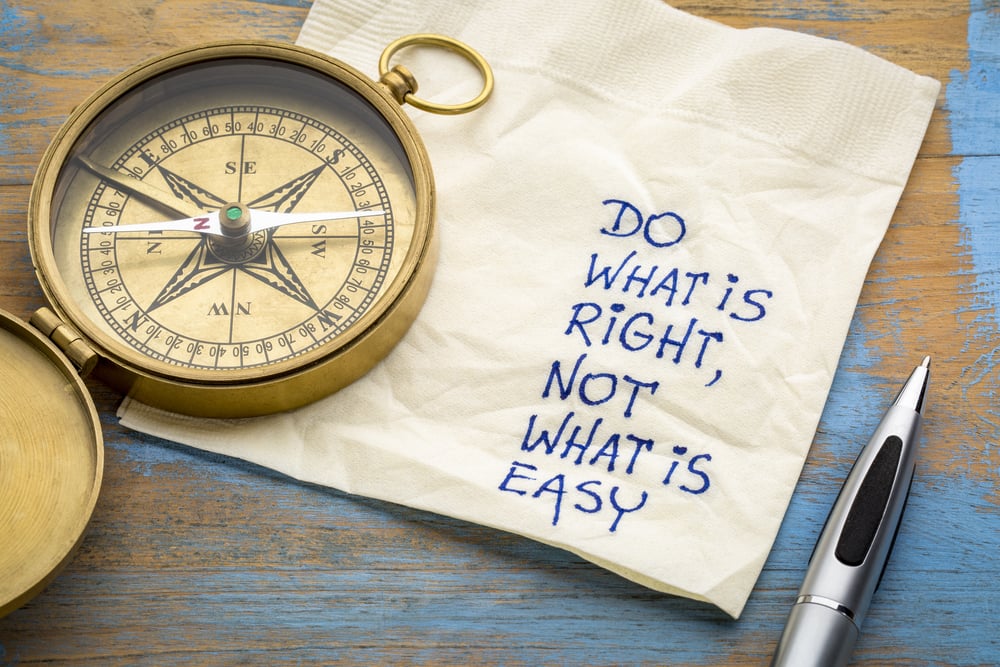
Recommended Video for you:
History Of Morality
Attempting to create a “history of morality” is difficult, as many would argue that it is a product of natural selection and evolution, and closely related to our social development as a species. There are various aspects that one associates with morality—cooperation, altruism, “loyalty” etc.—that are seen as products of natural selection. These traits increased an organism’s likelihood of survival and ability to pass on their genes.
The presence of such complex biological and social phenomena suggests that even animals possess a rudimentary form of “morality”, in that they also demonstrate such behaviors, such as protecting their kin. There is generally a disdain or avoidance of incest in human societies, and the practice of such is often considered immoral. Incest is also relatively rare in the animal kingdom, a preference directly linked to natural selection, due to the greater likelihood of mutation and poor fitness in cases of incest.
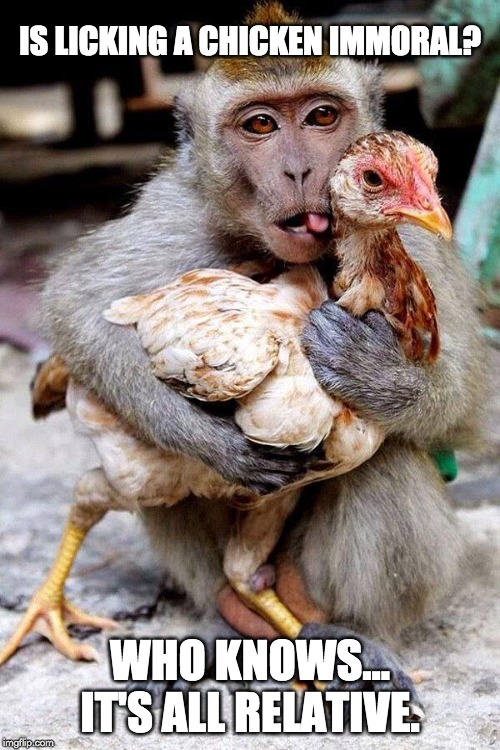
So, while the presence of certain moral behaviors is found in other forms of life and the ancestors of humanity, morality as we think of it today seems more closely related to advanced social practices, indoctrination, and expectation. As our social intelligence began to increase, along with our dependence on other individuals and groups, we surpassed the social nature of great apes and chimpanzees, who can form “political” alliances, and became ultra-social. Somewhere along the way, we developed the ability and instinct to collaborate to achieve shared goals, particularly if the result would be greater than it would be if two individuals worked separately.
This foundational concept of collaboration and cooperation vs. selfishness and self-interest is where the pillars of morality have been constructed. That being said, the concept of a moral compass and the discussions that surround it have become much more complicated in recent centuries, and will likely remain so. To this day, debates rage over “right” and “wrong”, so despite the evolutionary origins of this social phenomena, we don’t appear to be approaching a consensus. For morality to have a consensus, of course, implies that it is objective, versus subjective, the second critical dichotomy of this argument.
Subjective Vs Objective
The idea of something being true is when the content of someone’s statement matches up with that provable fact in reality. Something is true if it aligns with reality. However, there are also subjective truths and objective truths, which complicates matters. One person can say, “The wind feels good today”, which is their subjective truth. It is certainly true for the speaker and their experiences, but it may not be true for their companion, who isn’t properly dressed for the weather. Thus, it is a subjective truth. The other person can say, “The wind is blowing towards the west”, which is an objective truth. At the moment of speaking the sentence, the wind is blowing towards the west. There is no element of opinion, nor any way for the other person to refute the claim. Objective proofs are not subject to our feelings or preferences, they simply are!
Now, when we extend this analysis of truth to moral truth, or to the standardization of a moral compass, things grow even more complicated. Two different phrases must be introduced to properly understand the conflict here—moral relativism and moral absolutism.
Moral relativism argues that morality is subjective, and is completely dependent on the individual or group of individuals. Moral relativists believe that there is no absolute right and wrong, no clear boundaries for morality. Every individual has their own unique experience of life, and thus their own concept of morality. Moral absolutism, on the other hand, is the idea that certain moral truths are self-evident and universally true, regardless of whether a person supports or believes in them. Under similar circumstances, moral absolutism argues that the line between right and wrong never wavers.
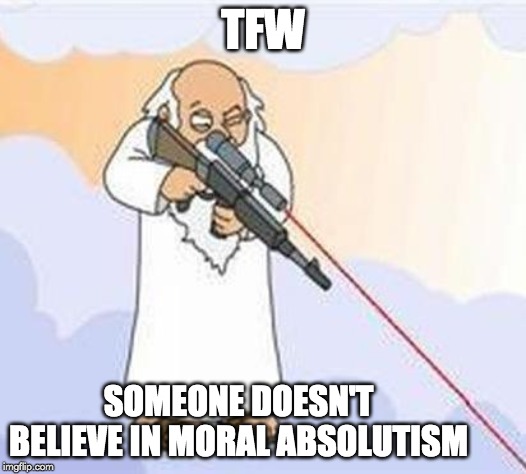
The argument for moral relativism, and thus the premise that morality is completely subjective, is flawed by clearly seen evidence, but moral absolutism seems impossible, given the endless variability of personality and individual perspective. Yes, young toddlers understand the difference between “fair” and “unfair”, and humanity’s possession of empathy, even at a young age, suggest that we know what is right and wrong, but subjectivity is impossible to avoid. Every single one of us has heard the Golden Rule at some point in life—“Treat others as you would like to be treated”—an aphorism that suggests a shared desire for a standardized level of morality, but it is entirely subjective. How others treat you is implicitly dependent on your own desires, behaviors, self-awareness and personal moral background.
While there are some pieces of common-sense morality that the vast majority of the population agrees on, such as not killing or raping innocent people, there are many other pieces of moral discussion that are far more fluid, from abortion and gay rights to the legalization of marijuana and gun control! We also cannot ignore the subjectivity of even the most seemingly clear-cut moral dilemmas. Theft is another clear-cut rule in some cultures, but is stealing bread to prevent your child from starving really a sign of low morals? Killing someone is almost universally considered to be “wrong”, but what about killing someone in defense of your life or the life of your family? As a caveat to that, morality feels highly subjective because it only applies to our species, i.e., most people would never kill a human, but will spend a lifetime eating cows, chickens and pigs that have been kept in captivity and slaughtered.
Sources Of Morality
Our moral compass develops at its own pace over the course of our lives, but there are some primary factors that establish our individual ideas of right and wrong, including religion, social institutions, politics, family and culture, among others.
Religion
Perhaps the greatest source of moral guidance, and the strongest proponent for moral absolutism, is religion. This is also one of the easiest ways to establish a moral stance; an omniscient and all-powerful god figure creates rules that humans must abide by, such as the Ten Commandments in the Judeo-Christian tradition, or the Laws of Islam. Unfortunately, religions of the world have never agreed on uniform guidelines for morality and behavior, and are often in direct contradiction to one another. Even within the same religion, there are traditions and rules that were once held as sacred and unquestionable, but are now considered outdated, cruel, or antithetical to the religion itself. Stoning adulteresses and executing homeowners if someone falls off their roof were once aligned with the moral code of religion, but even those absolute guidelines have changed over time.
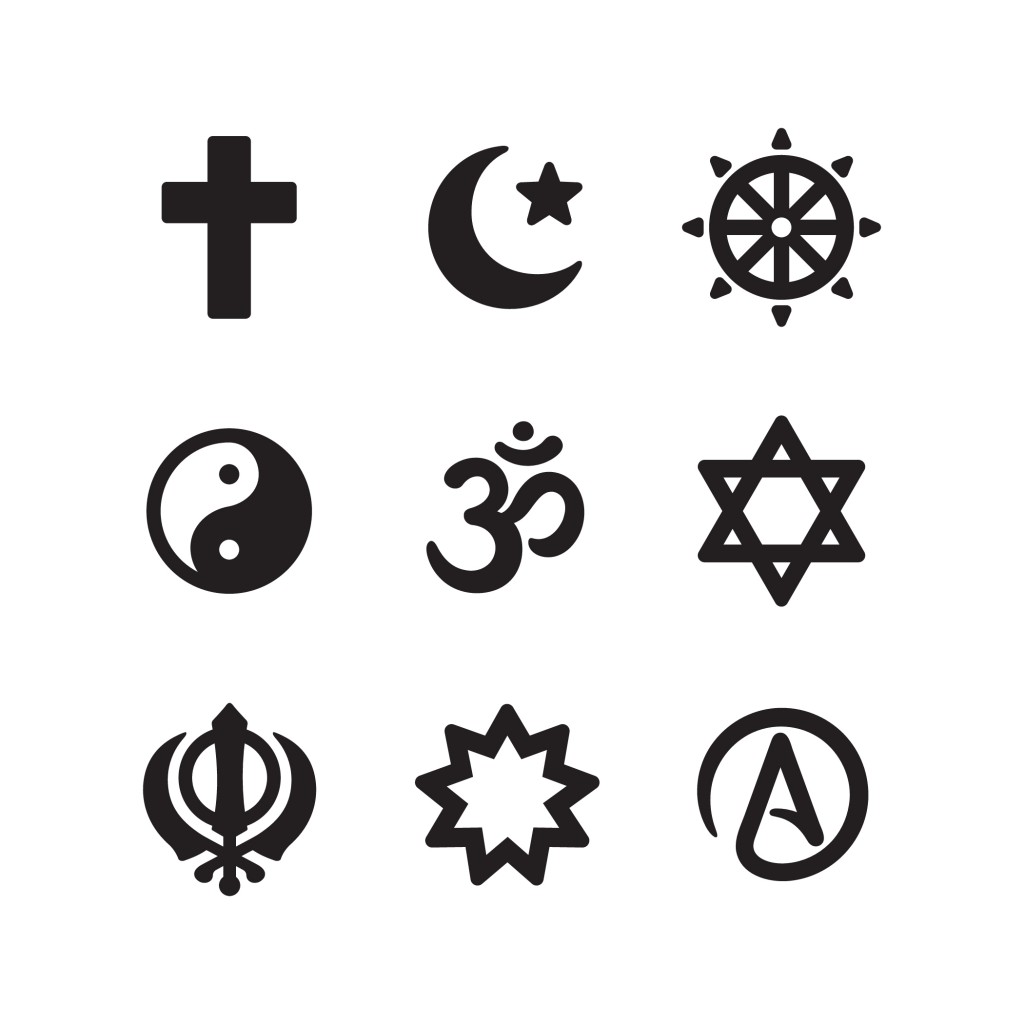
Social Institutions
Second to religion, in terms of a moral compass, is established and enforced by social and law enforcement institutions. Every country in the world has some type of established rule of law, a legislative guide for what is right and wrong, along with varying levels of punishment. Murdering a coworker in cold blood, breaking into someone’s garage, stealing a candy bar and rolling through a stop sign are all considered “wrong” in the eyes of the law, and could result in broad range of punishment. While people may not agree with all of the laws in place, and may ignore/break some of them at will, the rule of law does solidify the idea of a moral compass in most people, even if they don’t always follow it! The idea of social institutions affect morality extends to education philosophies and political systems, along with law enforcement practices.
Family
Childhood development is often linked to the discussion of nature vs nurture, as is the debate over the origin of morality. As mentioned earlier, children seem to understand “fair” and “unfair” very early on, which is probably the earliest iteration of “right”/”wrong” and “good”/”evil”. This instinctual empathy is coupled with our family’s subjective view on morality. If parents are selfish, cruel, bigoted and abusive, their children may have a very different understanding of compassion, generosity, and cooperation. The things children are punished for may establish the boundary lines for “good” and “bad”, but those structures are only put in place based on the subjective views of parents and guardians.
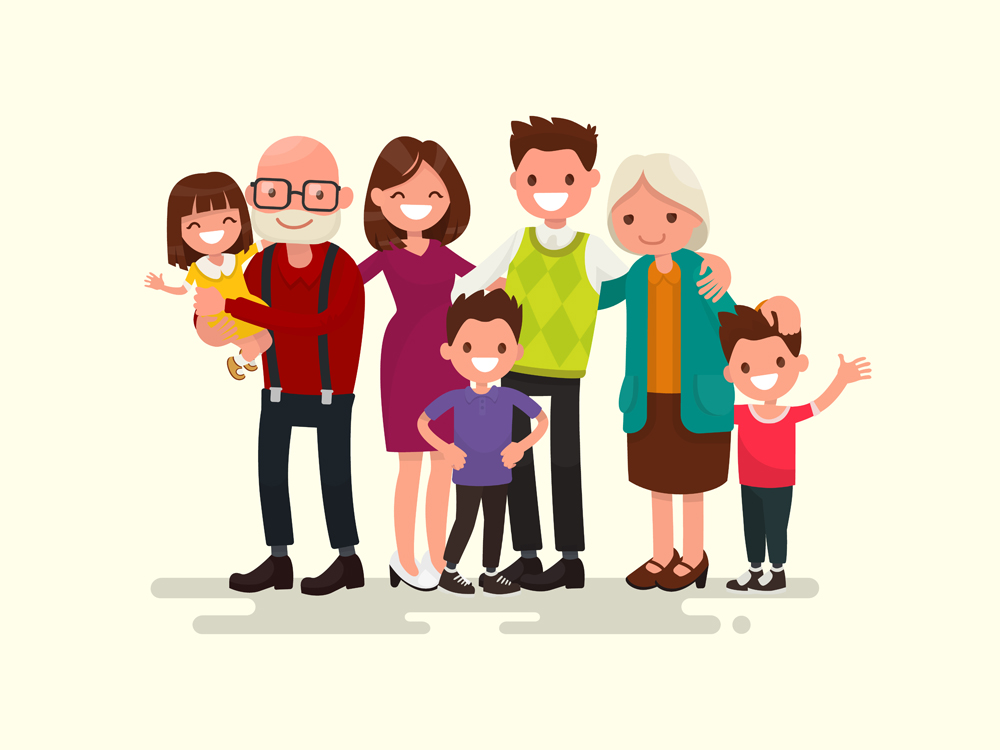
Culture
Cultural norms can also affect one’s view of morality, as we tend to adopt the moral stance of the society’s in which we are raised. Support or rejection of arranged marriages, sexual promiscuity, questioning of authority, and patriotism will be strongly influenced by the country or culture you find yourself in. These are considered moral issues in many places, but perspectives on these cultural issues swing wildly between extremes!
Universal Values
Although less rarely discussed, there are some universal values that can guide and shape one’s morality. Internal concepts like discipline, integrity, well-being and dignity may also influence one’s behavior and guide the needle of your moral compass. Like so many other influencing factors, quantifying these universal values is impossible, though it is possible to judge them relativistically, i.e., acting with more/less integrity, improving/worsening your well-being, displaying more/less discipline.
The Evolution Of Morality
The evolution of morality over time is perhaps the most damning evidence against moral absolutism or the quantification of a moral compass. The idea of good and evil have fascinated human scholars, philosophers, artists and lawmakers for at least 5,000 years, and over that time period, morality has evolved and grown more complex. Some attempt to distill moral behavior into having consent of all parties involved, and doing no harm to those involved or others. When the ends justify the means, and the action is done with the intention to increase happiness or alleviate suffering, it is often considered to be “morally correct”. If all of those elements can be satisfied without lying, cheating, stealing or violence, one could argue that a behavior is moral.
However, these rules were not always in place, and are not always applicable to every situation. Every behavior, scenario and motivation is necessarily put through a subjective lens—our own—which we develop and change over the course of our lives. Every interaction we have changes our perspective on the world, and thus our way of acting within it. Many would argue that there are some morals that cannot and should not change, while others can be altered or evolved based on personal preference or other influencing factors.
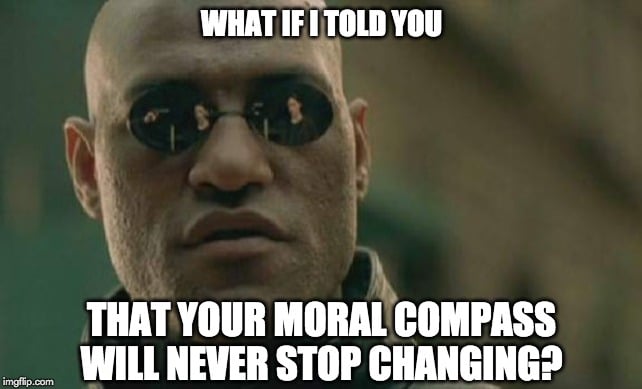
Mistakes will be made, and ethical dilemmas can cause our opinion on morality to change. A flirtatious person might change their ways after having their heart broken by an unfaithful partner. Someone who casually tells white lies may shift to a strictly honest lifestyle after being deeply deceived by an employer, or after hurting the feelings of a valued friend. Our moral compass can help guide us towards what we “ought” to do, regardless of what others expect or want us to do. What we “ought” to do, however, may consistently change over the course of our lives.
A Final Word
The nebulous nature of morality, which can shift and transform over time and based on subjective experience, makes it hard to argue for a universal moral compass or for moral absolutism. While each of us has our own moral compass, the north that we choose to follow will never be permanent, objectively “correct”, or identical to others.



